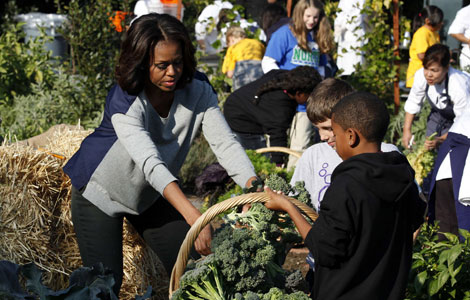Promoting baby formula prohibited in hospitals
Updated: 2013-11-01 00:33
By Wang Qingyun (China Daily)
|
||||||||
Hospitals are banned from accepting gifts, sponsorship or kickbacks from baby formula companies, authorities said on Tuesday.
Companies producing baby formula are also prohibited from promoting their products in hospitals.
The decision was jointly made by the China Food and Drug Administration, the National Health and Family Planning Commission and the State Administration for Industry and Commerce.
Hospitals and their members of staff are also banned from promoting baby formula to families of newborn babies, said the statement issued on the website of the China Food and Drug Administration.
The move came more than a month after the National Health and Family Planning Commission issued a similar statement in response to a scandal in which Danone was discovered to have bribed medical workers in hospitals in Tianjin to give babies its infant formula products under the brand of Dumex.
On Oct 14, the Tianjin government said that Dumex China paid 116 workers in 85 hospitals in the city to promote their infant formula by handing out pamphlets and giving lectures to parents.
The government said it has confiscated the money these medical workers received and 13 were penalized.
Dumex apologized for the incident.
Liu Fengling, head nurse at the obstetrics and gynecology department of Xuanwu Hospital in Beijing, denied that any of the nurses in her department had taken kickbacks from dairy companies.
She said nurses in the hospital had attended the lectures organized by infant formula companies but this was not a sign of endorsement. Experts from other large hospitals were also invited to the lectures, which focused on nursing skills.
"We offer infant formula to babies only when doctors have diagnosed that their mother's breast milk is not enough and have prescribed adding infant formula to guarantee nutrition. We collect the infant formula from the nutrition department," she said.
The government issued a regulation in 1995 on the sale of infant formula. This stipulated that infant formula companies were prohibited from sending samples or gifts or offering their products at a discount to hospitals, pregnant women or families of newborn babies.
"Maybe hospitals in Beijing are observing the laws better," Liu said.
Zhao Meimei, a 27-year-old woman who gave birth in September in Wuhan, capital of Hubei province, said there were promotions for dairy products in the hospital where she gave birth.
Zhao said the last time she went to a lecture in the hospital for pregnant women or new mothers, a representative from a baby formula company talked for about 20 minutes, introducing their products before the lecture began.
"I took samples of their products after the lecture," Zhao said, adding that she also saw advertisements for other products, including diapers and photos, in the hospital.
"It's fine with me as long as the hospital doesn't force us to feed my baby with a certain brand or feed my baby infant formula without my approval."
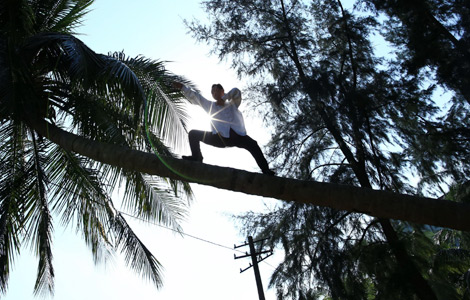
 Kung fu master becomes hit online
Kung fu master becomes hit online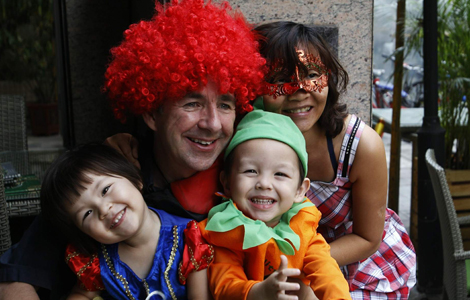
 Color-blind love
Color-blind love
 Lenovo's new secret weapon: Hollywood star
Lenovo's new secret weapon: Hollywood star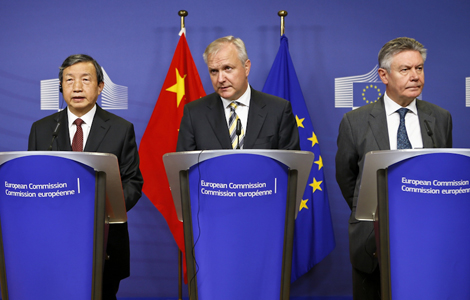
 Brussels visit heralds closer trade ties for EU and China
Brussels visit heralds closer trade ties for EU and China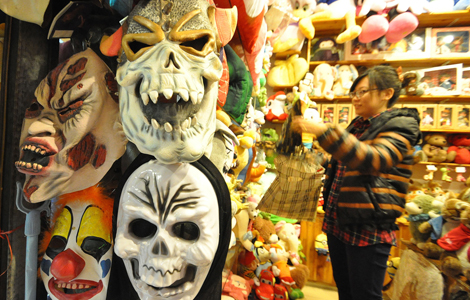
 Halloween gaining popularity but still sees cultural differences
Halloween gaining popularity but still sees cultural differences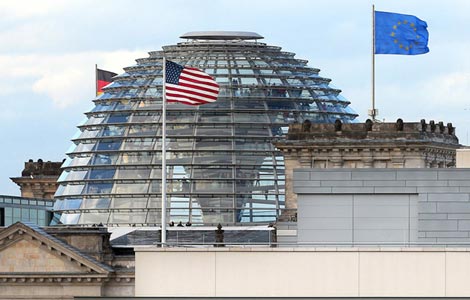
 US embassy accused as 'spy hub'
US embassy accused as 'spy hub'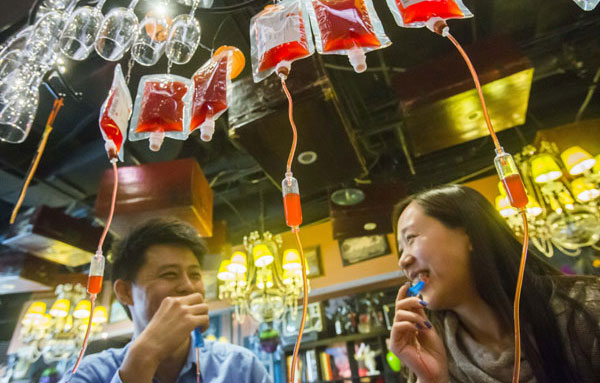
 Halloween beverage offers vampire experience
Halloween beverage offers vampire experience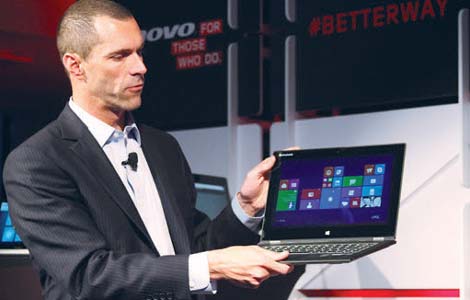
 Lenovo launches new Yoga tablet
Lenovo launches new Yoga tablet
Most Viewed
Editor's Picks

|

|

|

|

|

|
Today's Top News
US business asks easing of market barriers
Benefit held for NYC official's ex-campaign treasurer
HIV epidemic needs education, not bath house bans
Tian'anmen jeep crash a terror attack
US spied on Chinese cities: report
Putin beats Obama in Forbes list
Legislation to help reduce pollution
Survey examines education gap
US Weekly

|

|


